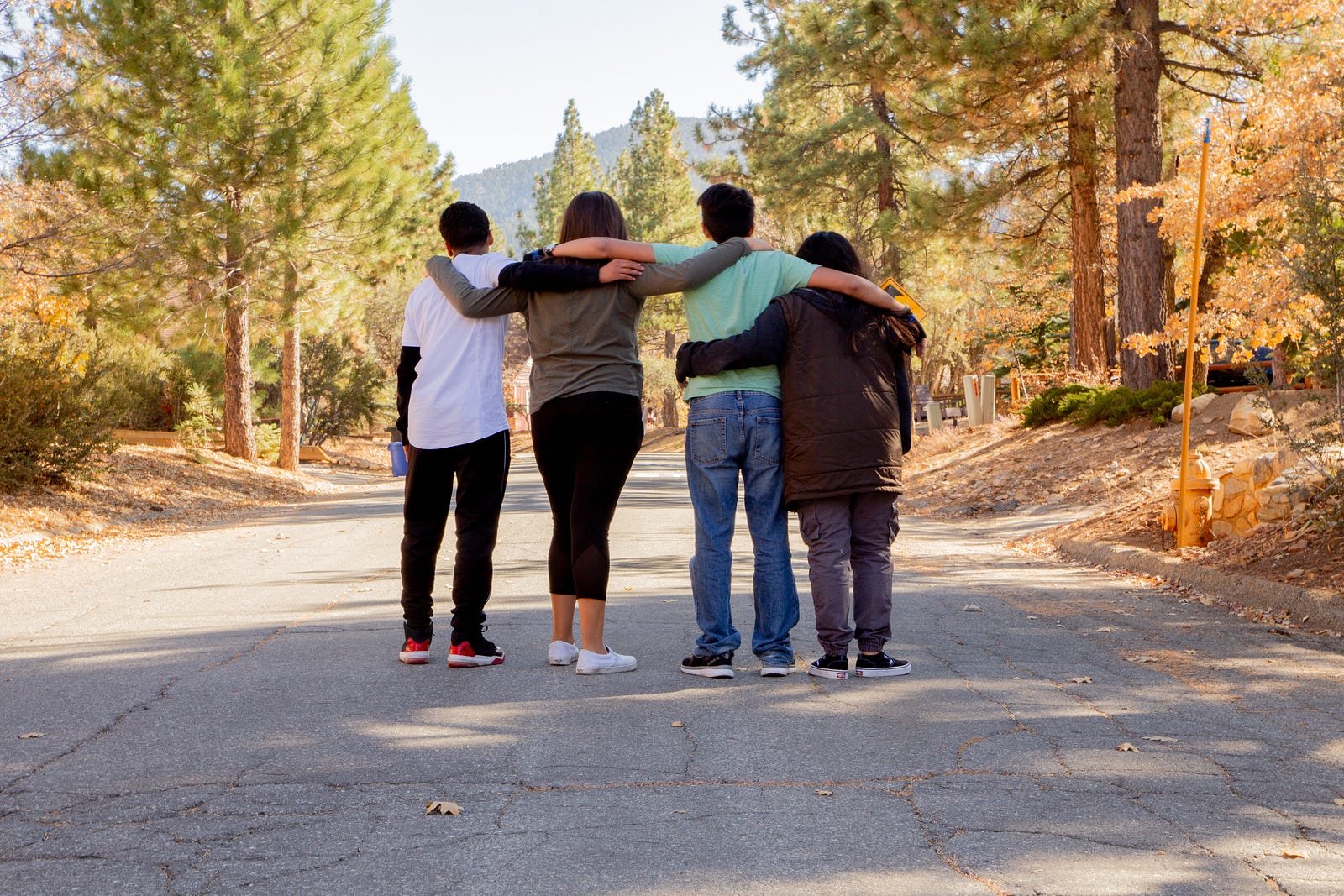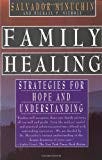
As we enter a new era of Gen X and Millennials heading up young families, there is a new kind of family evolution taking place. The family as an institution is being challenged from all angles. With the complexities of life, the variety of family structure including re-marriages and same-sex families, there is a renewed interest in family dynamics, and in particular family therapy.
As the family unit forms a new identity, I could not help but draw on Salvador Minuchin’s book on family therapy, titled “Family Healing”, which has been simultaneously nostalgic and sobering for me. It has become one of my all-time favourite books on family therapy. He eloquently articulates a myriad of unspoken truths that resonate strongly — particularly as a recent parent myself, changing my perspective family dynamics in a refreshing way as I navigate raising my own young family everyday.
Sadly Minuchin died two years ago in October 2017, yet his pioneering work on structural family therapy continues to influence family therapists all over the world. He also mentored one of my favourite psychotherapists, Esther Perel, whose work on couples therapy continues to fascinate me.

Family Healing by Salvador Minuchin
Here are my most notable takeaways from the book, which I hope others find valuable in making sense of their own family dynamics. As a parent, the book should be required reading for everyone.
I. On Family Roots

1. Women may not completely find satisfaction in being a mother and/or wife alone — yet the very idea to think otherwise threatens mothers — threatens the family unit. Motherhood and wifehood in the traditional sense are in transition in current culture. Women everywhere in the world are adding more and more identities beyond these and the roles of women everywhere are evolving rapidly and yet, not fast enough.
My Favourite Quote: “But at the time, all of us, including my mother, would have felt very uncomfortable with the idea that a proper wife might not find complete happiness in wife and motherhood.”
2. A husband often believes that he cannot do the roles that his wife does and vice versa — however this could not be further from the truth. As spouses we often find that we won’t be able to do the roles solely fulfilled by our other halves, as over the years we have been programmed to think we are incompetent, but it’s amazing how much we can do once our spouses are absent.
My Favourite Quote: “During the last fifteen years of her life, as a widow, she evolved into an extraordinarily vital and complex person. She rediscovered her competence in the tasks my father had carried out and found she could do them in ways he had never thought of.”
3. Minuchin points out that family and community give us a huge sense of belonging and with that a deep and strong identity. We don’t need to go looking for it in the external world. Family loyalty is what makes our world safe — knowing that we have each other’s backs. In a post-millennial world, this truth is being shaken — and we are no longer able to rely on our family to give us our sense of identities, our purpose — we seem to have transposed into a shallower orbit where we are desperately clutching to either our work roles or spouses or some form of meaningful identity to satisfy this inner need for belonging and identity. Yet we find the pressure of this too burdensome especially if we are not happy with one or the other. You can see this shift taking place with Meghan Markle and Prince Harry as they break away from the British Royal family.
My Favourite Quote: “Human beings are snails. We carry our shells of memory with us, and we are them. I grew up knowing that we are all responsible for each other. Loyalty to the family, the clan, to others, was part of my daily experience, and at the same time I simply expected to be protected by others, because I belonged, and they owed me the way I owed them. This gave me a sense of a predictable and reasonably safe world, so that even though our lives were profoundly shaken.”
II. On Family Therapy

4. As with all things in life, nothing is permanent — not even family. The family unit continues to evolve and grow and once the family as a whole has mastered a particular phase, it’s time to move on to the next phase, where everything is unfamiliar and new again. It’s like throwing yourself into the deep end over and over again every time you find yourself comfortably treading. It’s continuous evolution and the biggest challenge families face is the ability to adapt to constant change if the unit as a whole is to survive.
My Favourite Quote: “To a clinician trained in child psychiatry, it was obvious that families could be seen as organisms evolving through developmental stages. Each stage brings fresh demands, forcing family members to accommodate to new needs as family members grow up or age, and circumstances change. As families are conservative, their natural response to developmental shifts is to insist on continuing the familiar. So quite often the task of therapy is to help the family re-adjust to changing circumstances.”
5. Each family member influences the behaviour of the others. The example Minuchin gives is that of a controlling father, a son and a mother. The impact of the controlling father is felt by the mother who in order to counteract the effect of this on her son, is overly lenient with him, disciplining him very little. The result is that the son behaves neither at home nor at school. Very often we blame a particular family member to be the rebel or disruptor, breaking up a family, The truth, however is that every member of the family has a role to play — and had power. Even if one family member acts and commits to a small change in behaviour, a beneficial impact on the family overall will be observed, potentially leading to a positive domino effect.
My Favourite Quote: “It may, for example, be relatively easy to discover that a little boy who misbehaves in school has a mother who doesn’t make him behave at home. On closer examination we might see that she doesn’t discipline the boy because she’s overly involved with him. They’re constantly together and interact more like playmates than parent and child. But why is the mother so close to the boy? Why does she need a playmate? Is it because she is emotionally distant from her husband? That’s not uncommon. Perhaps she is deliberately lenient with the boy to counterbalance her husband’s overly harsh control. The reason so many family dilemmas (even as simple as a boy who misbehaves at school) defeat us is that we fail to recognize that every family member’s behavior is influencing and influenced by the behavior of the rest.”
6. All families have a story. A story that they tell themselves, that they adhere to — that they believe about themselves that becomes ingrained in the family psyche — that anything different is uncomfortable. This story influences the family’s future more than any other known truth about the family.
My Favourite Quote: “Later on, without abandoning the concepts of family structure and family development, I began to focus on the particular story that a family constructs to make sense of their life. People have the habit of becoming the stories they tell. When memory speaks it tells a “narrative truth,” which comes to have more influence than “historical truth.The constructs that become the shared reality of a family represent mutual understandings and shared prejudices, some of which are hopeful and helpful, some of which are not.”
7. Families often seek help when they find themselves stuck in their story — their narrative story no longer serves them and they need to find a new way to relate to each other — and to maximise each other’s potential which might have been suppressed by the unspoken rules of the story that they all subconsciously bind to.
My Favourite Quote: “When families come to me for help, I assume they have problems not because there is something inherently wrong with them but because they’ve gotten stuck — stuck with a structure whose time has passed, and stuck with a story that doesn’t work. To discover what’s bogging them down, I look for patterns that connect.”
“Invisible rules prescribe certain behavior, and the family perceives the options they have chosen as inevitable and unchangeable. As a result, the family constructs people who function below their capacity in the family setting.”
8. Once you become a member of the family you too begin to experience countertransference, i.e. you begin to relate in the same way as the other family members, due to the nature of family dynamics — what might have been invisible at the beginning now starts to reveal itself — and the new member of the family, be it in a therapist capacity or otherwise, starts to understand where the family is stuck and the behaviour changes needed to address these blockages.
My Favourite Quote: “As therapy progresses we begin to develop a system of which I am a part. In this system I begin to experience the pushes and pulls of the family’s preferred ways of being, and this experience modifies my ideas about the family. This is akin to what psychoanalysts call countertransference. I experience the pulls of the family, and that gives me some idea about the ways in which family members, too, experience the family’s imperatives.”
9. To bring about change in a family situation, uncertainty is necessary. Furthermore this uncertainty needs to be embraced. Why we are so afraid of uncertainty is that it invokes our greatest fears and anxieties. It also to some level screams change — and change almost always precedes loss — the loss of the familiar plus more. Secondly there is always some form of ‘space’ play required — either closeness or distance for the magic but arduous work to begin. Sometimes couples need to increase intimacy to reignite the initial connect they felt. Sometimes siblings need their parents to jump out of the boxing ring so that they may have the space and time that they need to explore their relationship and work things out.
My Favourite Quote: “Families do change. But the process of change usually involves some level of crisis. The therapist has to join, gain acceptance, elicit trust, and then motivate the family to jump into uncertainty. I try a variety of techniques that do not rely only on analysis and interpretation. I may encourage closeness. I may remind a couple that without time and attention, the intimate bond between them will gradually erode. I may encourage distance. Some parents doubt that their children can get along without them, and that doubt robs the children of the space they need to explore.”
III. On Being A Couple

10. We often think romance, love, courage, kindness, compassion are the virtues needed to make a couplehood work — however marriage or any partnership is an institution, where an unspoken set of rules takes over. There is an unspoken set of rules within an invisible structure, that governs the day-to-day which becomes the journey families end of taking. The romanticising of family in modern day life is one for hollywood scripts — it merely stands as a myth glossing over the mundane routine of life.
My Favourite Quote: “In the heart’s business we like to think that personal qualities such as courage and generosity are what it takes to make relationships work. And yet, whether we recognize it or not, families take on structural patterns that govern our lives, not unlike the way anatomy governs our movements.”
11. Marriage is not the be all and end all. It is not what completes us. It does not guarantee the happiness we have been fantasising about, the fairytales we have been promised when we are young. It might give us safety and security but a balance is needed from within and without the marriage. Couples who have been married a long time, are aware of this and eventually find an optimum balance.
My Favourite Quote: “Most of us know (or find out) that marriage doesn’t complete us, in the sense of making up for what’s missing — that a husband’s self-assurance will make up for a wife’s insecurity or that a wife’s outgoing nature will resolve a husband’s reticence turns out to be a fantasy. Two halves don’t magically become whole by saying ‘I do.’”
IV. On Parenting and Children

12. It takes a village. Perhaps obvious, I never really appreciated or understood this statement until I had children of my own. We cannot do it alone and what’s harder perhaps is that even when we do re-create ‘village-like’ support in the form of friends, family, teachers, babysitters, au-pairs and other childcare providers, the delegation will still bring forth its own trials and tribulations. The journey is never smooth and at the end of the day, we shoulder ultimate responsibility — responsibility that only ends with death, no matter how old you or your children are — a journey that is as exciting as it is frightening, whose stresses and strains nudge at us, like a dull pain, whispering ‘till death do us part’.
My Favourite Quote: “The world makes many demands on us, and we don’t have time to accommodate with ease to each other’s needs. If we had only to fish or fly or look for food, if we could concentrate on learning to be proficient at survival, our lives would be simpler. But the demands of socialization become more and more difficult. Parenting turns into a lifelong endeavor, and a variety of people and institutions become involved in doing the job, with varying degrees of success.”
13. Other people’s children seem perfect, but they are not. As we all know no-one’s perfect and nor are the children that seem to appear so.
My Favourite Quote: “They will still look at friends or relatives whose children seem perfect. Let me tell you, it is an illusion.”
14. All family members are responsible for a certain behaviour being invoked by difficult child. What’s harder is that each of the family members are blind to their own behaviours sustaining this — the same tactics are repeatedly applied in the hope that the child will change. Change does not happen and this is when an effective family therapist could be life-changing.
My Favourite Quote: “Experts usually agree on certain basic premises — the behavior of a child is maintained by the combined effort of all family members.” “Children are actors and reactors and often more adaptable than we realize.”
15. As the day-to-day demands of family life take over the closeness within the couple is often replaced by the mother’s closeness with her children. This is seen over and over again — the controlling father pushes away the mother who starts gravitating towards her children — their demands takeover and their importance is prioritised over the marital relationships. What’s difficult is that this is almost impossible to recognise or acknowledge unless its pointed out in a therapy setting — most middle class families experience this and such arrangements where children become the apple of the family eye are often accepted as “the norm”. Boundary setting between a couple and their children is critical to restoring intimacy within the couplehood.
My Favourite Quote: “It was, in fact, the signature arrangement of the troubled middle-class family: a mother’s closeness to her children substituting for closeness in the marriage that had never developed or been lost.”
16. There’s never simply a couple in the room — there’s always at least 6 people and sometimes more — the parents of each of the partners and sometimes other family members too whose voices and values have been internalised by each partner quietly sit there. The therapeutic work required is more complex and painstaking then is initially appreciated. The origin story of each partner needs to be revealed to make sense of the entire situation. Furthermore, each partner needs to set appropriate boundaries with their own parents in order for the marriage or partnership to succeed. If not then there are unresolved issues that need to be worked on by the respective partner(s) with their own parents in order to move forward.
My Favourite Quote: All families are extended families. Even in the United States, where young families are often cut off from their kin, the larger family is still there, a dormant resource.
17. Boundaries are a two-way construct. If one person is not respecting the boundary, it is largely because the other person is allowing this boundary to be pushed.
My Favourite Quote: “But a lack of boundaries is maintained by both parties. For one person to intrude, another must tolerate it.”
18. The best way to help your children develop, is to often let go. Children’s lives are often a struggle between freedom and parental control. Children want to be free to play, to imagine, to think for themselves but too often they are bogged down by the preoccupations and anxieties of adult parents. Parents often also feel the need to intervene between siblings — however learning to get along with each other is a life lesson that prepares them for future relationships in the real world — do not deprive them of this opportunity. Controlling your children when they are younger will mean they will have a harder time making friends, holding jobs, and falling in love.
My Favourite Quote: “What should they do to help their children grow up? Sometimes the answer is nothing: Let go.”
19. Being part of a family often mean unconditional love, support and connection — but it also means constraints on freedom that need to be accepted. We have to accept the two polarities if we are to thrive within a family unit. There should be an emphasis on getting along well to balance the goals on individuality that are strongly ingrained in current society and culture.
My Favourite Quote: “The family therapist can navigate between the realm of the individual self and that of the family unit because all family members recognize that they are connected, and how they are connected . With their long history in common, they recognize that in living together they both constrain and enrich each other.” “Life in the family does define and limit our freedom, but it also offers untapped potential for personal happiness and fulfillment.”
20. The family unit has an incredible amount of untapped resource. If families could take advantage of this through the help of a ‘Minuchin-like’ family therapist, it might be the path to fulfillment and love for struggling families around the world.
My Favourite Quote: “About “dysfunctional families,” and many people see themselves as wounded survivors: “It’s their fault that I’m so unhappy. My mother drank. My father beat me.” But when I meet with families I don’t see villains and victims . I see people trapped in self-defeating patterns of disharmony. I know that the family has untapped resources of support, love , and caring, and that the good of the many will also be the good of each one. So I focus on helping them see the broader context of the self — the family self."
“I am amazed by the variety of resources people have and the ways they can change — that is, use their resources differently. This means accepting the possibilities and limitations in oneself and in others. It means tolerating uncertainties and differences. It also means hope — for new ways of being together. This is the song our society needs to hear: the song of me-and-you, the song of the person in context, responsible to and for others. To hear it, we need the courage to renounce the illusion of the autonomous self and to accept the limitations of belonging.”
A big hello and thank you for reading! Passionate about literature, psychology, and life I launched Book Therapy as an alternative form of therapy using the power of literature. I create reading lists/personalised book prescriptions based on your individual needs, this is my signature personalised reading service. My book recommendations have featured in The Guardian, NBC News and Marie Claire. You can also check out Book Therapy’s free reading lists and A- Z of book prescriptions (covering both fiction and non-fiction). These suggest books based on your existing life situation (e.g. anxiety, job change, relationship heartache) as well as interests (e.g memoir, historical fiction, non-fiction, crime etc). There’s also a Children’s A — Z of Book Prescriptions. Feel free to check out the blog for more literary gems. There’s also a post on my personal story of how I entered the world of bibliotherapy and book curation. I train mental health professionals, librarians, teachers as well as readers on using bibliotherapy in their own work through our online Bibliotherapy, Literature and Mental Health course. And if you’d like to connect, email me at bijal@booktherapy.io or www.booktherapy.io.
Book Therapy is a participant in the Amazon EU, US and Canada Associates Programme, an affiliate advertising programme designed to provide a means for sites to earn advertising fees by advertising and linking to Amazon.co.uk, Amazon.com and Amazon.ca
